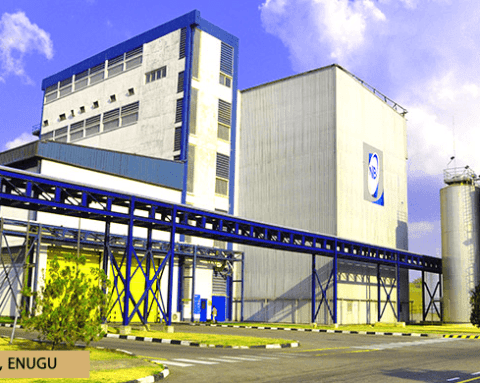Nigeria’s Minister of Power, Adebayo Adelabu, has come under fire after his statement that the country requires $10 billion annually for the next 10 to 20 years to achieve a stable and reliable electricity supply.
The minister, who made the declaration during the commissioning of a 2.5MW solar hybrid power plant at the Nigerian Defence Academy (NDA) in Kaduna on Tuesday, claimed that some other foundational bottlenecks needed to be fixed for the money to have a significant effect in revamping the power sector.
Join our WhatsApp Channel“For us to achieve functional, reliable and stable electricity in Nigeria, we need not less than $10 billion annually for the next ten to twenty years. But there are some foundational bottlenecks that we experienced in the past that need to be fixed for the spending of this money to have meaning,” Adelabu stated.
According to him, President Bola Tinubu’s administration has achieved the legislative and policy foundation by signing the energy bill into an act.
READ ALSO: Nigerian Govt Set To Revamp Failing DisCos In Major Power Sector Reform
He pointed out that the bill has helped in decentralising the power sector to enable all levels of government- federal, state, and local government- to play crucial roles in increasing electricity access. “This has given autonomy to more than eleven States and more are still coming. They can now play roles in the power from generation to transmission to distribution and even metering,” the minister added.
Adelabu highlighted other challenges in the power sector that need to be resolved, including infrastructure deficit and metering gap (over 50 per cent).
Some Nigerians took to social media to criticise the minister’s proposition. They questioned the feasibility of the plan, comparing Nigeria’s power needs with countries like South Africa and Egypt. They also raised concerns about corruption and past mismanagement of funds in the power sector.
They said $10 billion, which amounts to $200 billion in 20 years, is outrageous. They said it is just a subtle way of giving excuses for the government’s failure over the years to fix Nigeria’s power sector, which is key to industrial growth and economic development.
Human rights advocate and researcher, Tamara Gunuboh, questioned how the minister came up with such a “humongous estimate.”
“Is it meant to excuse their abject failure in the power sector or to shirk responsibility and accountability? This is outrageous! He said $10 billion per year for 20 years, which will amount to 200 billion dollars,” Gunuboh stated via X.
He noted that Nigeria is endowed with various forms of natural resources needed for power generation, such as natural gas, coal, sun for green energy, and mineral deposits like uranium, Lithium, etc., yet it seems impossible to generate adequate electricity needed to drive household and business activities across the country.
READ ALSO: Cost-reflective Electricity Tariff Versus Solar Energy Cost: The Dilemma Of Nigerian Consumers
He blamed the problem on the failure of political leadership to design and implement good policies that mitigate the plights of the citizens over the years.
A public affairs analyst, Chief Emmanuel Okafor, observed that the government has for decades allocated billions of naira to the power sector, yet there is nothing to show for it.
“This is extremely loud and unbelievable. After decades of yearly federal allocations, many areas still live in darkness. No steady power, no results—just recycled excuses and constant fraud allegations,” Okafor stated. “So, where did all the previous billions go?” he asked.
“You don’t fix a leaking bucket by pouring in more water. Until there’s transparency and real accountability, this $10 billion-a-year talk is just another pipeline for corruption,” Okafor added.
“That’s a criminal statement. Do you know the equivalent of $10 billion?
“This is how they pad budgets and overestimate everything just so that they will pocket it,” another X user, Mr Makanaki @makanakiii wrote.
“Power Minister said Nigeria needs $200 billion for standard electricity 24/7. Meanwhile, Ghana spent 40 billion Cedis, which is equivalent to $3.2 million. Maybe Nigeria will light the whole of Africa?” Maibitil Mni @maibitil_ wrote.
Current Power Situation in Nigeria
With an installed generation capacity of about 13,600 megawatts (MW), available power generated and distributed across the country hovers around 5,000 MW.
The Nigerian Electricity Regulatory Commission (NERC) report for the fourth quarter of 2024 revealed that with a total of 28 grid-connected power plants, consisting of 19 gas, five hydro, two steam, and two gas/steam-powered plants, the average available generation capacity was 5,296.89MW. This was even an increase of 195.98MW (+3.84 per cent) from the 5,100.90MW recorded in the third quarter of 2024.
As of 2022, only 61 per cent of Nigerians had access to electricity, with rural areas being the most underserved.
Managing Director of Rural Electrification Agency (REA), Mr. Abba Aliyu, disclosed that about 80 million Nigerians lack access to electricity.
There have been recurring cases of grid collapses, which often throw a significant part of the country into blackout, disrupting business activities that rely on power supply from the grid.
Adelabu’s $10 billion annual investment plan highlights the scale of Nigeria’s power sector challenges. While renewable energy projects and policy reforms are steps forward, sustained funding, transparency, and private sector involvement will, according to experts, be critical for success.
Former Minister of Power and chairman of Geometric Power Limited, Prof. Bart Nnaji, recently stated that Nigeria needs to generate and distribute at least 100,000 megawatts (MW) of electricity to meet its industrial, economic, and population demands.
Nnaji, who spoke on Arise News Television’s Morning Show on Friday, expressed concerns that with the current state of the transmission infrastructure, it cannot carry anything close to the volume required. He called for an urgent upgrade of infrastructure across all tiers of the electricity value chain—generation, transmission, and distribution.
Victor Ezeja is a passionate journalist with seven years of experience writing on economy, politics and energy. He holds a Master's degree in Mass Communication.










